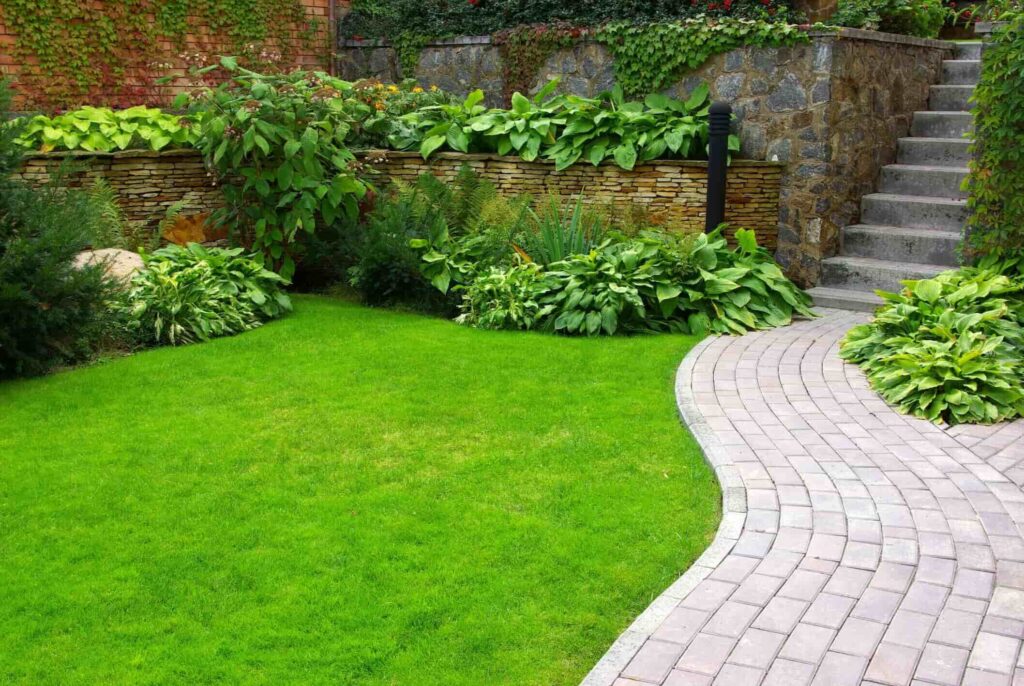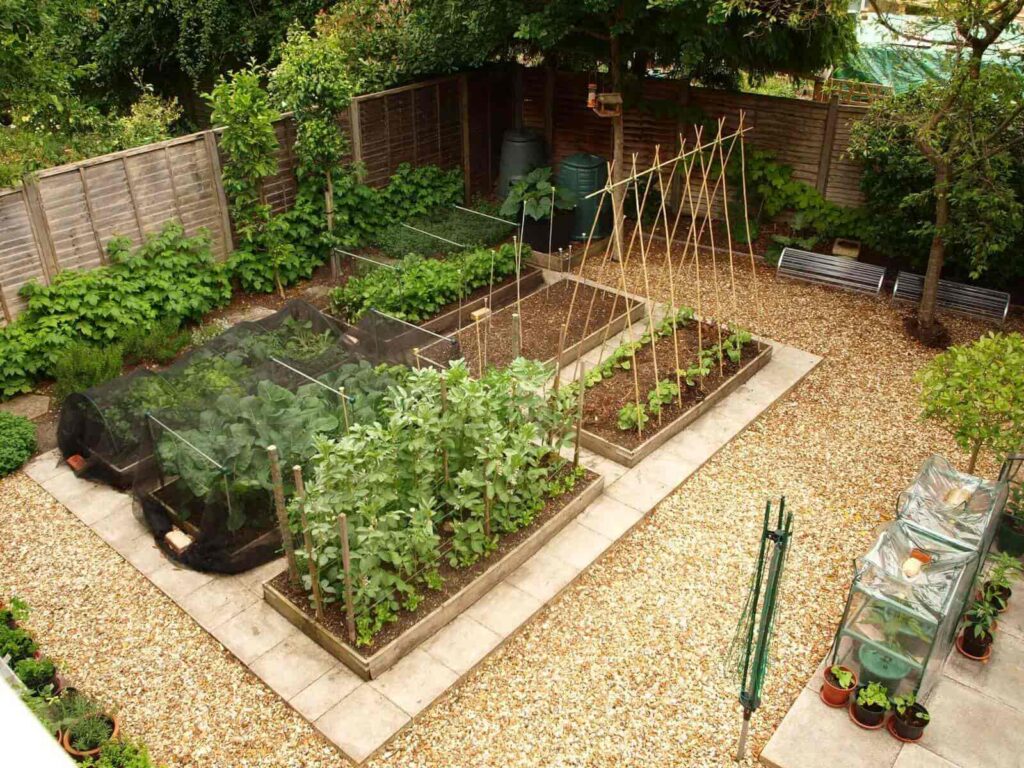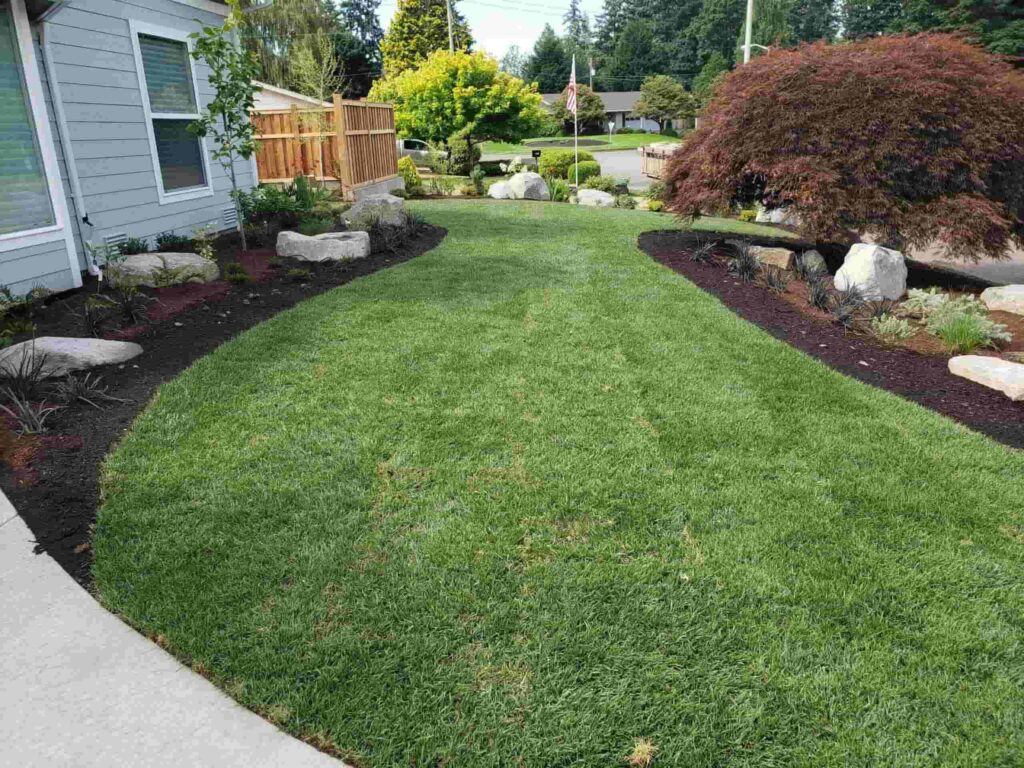Start with Planning for your Needs
When you get on with the design, it is essential that you first make a list of the requirements that you have, and accordingly, you can design the yard. If you want children or pets to play in your garden, or entertain your guests in your lawn, grow your veggies, etc., the landscape design must take into account all these requirements.
Chalk out Areas

source: everlastservices.com.au
You must check the location of your yard and the directions, and the wind and sun movements. This will be essential to avoid expenses & frustrations later if you discover if the placement of the areas is wrong. For example, some areas may be too windy; you will never be able to enjoy a bonfire there, some areas may be too sunny, your evening tea may be far from pleasant if you put a patio there. Even for planting your trees and plants, your estimate of the sun and shade will be needed. Some trees and plants do well in sunlight, while others are best suited in a shady or damp place. So the directions will be valuable in your design.
Consider Ideas at leisure

source: cloudinary.com
Our plans change over time, as well as our needs and perspectives change. You must mull over your plans for some days or weeks before you start executing. This will help you carefully think over your ideas from different perspectives. Go around your yard and mentally relive the landscape during a different time of the day.
Execute in Phases
While watching a redesigning show on television, you may think that it is a cakewalk and can be done in a matter of hours or a day, but that is far from reality. In these shown, much happens behind the scenes; however, in your real life, you will have to do all the hard work on your own. You may have little help, or the budget may also not be sufficient to start executing all the landscaping all at once. It is prudent to start with small areas and complete in phases. This will help you conserve your resources as well as energy and reduce your exhaustion and frustrations.
Test the Terrain

source: pinterest.com
Before you put together a fancy design for your landscape, you must have a fair idea about the topography and the soil quality. This will help you plan out the yard, your grass, and the plants. If you have a slopey area, it may be a bad idea to cover it with the grass. The hard work of mowing is undoubtedly going to tire you out. Also, the soil type will be essential to know which types of trees and plants and flowers will do well in your garden. If you start planting without checking the soil quality, you may not get the desired results.
Determine a Focal Area and theme
Every landscape has a focal point along which the entire garden is designed. A good design must have a focal point or a series of focal points that may add a unique style as well as break the monotony or cover a dead space. It can be a beautiful tree, shrubs, some stone sculpture, beautiful chairs, or some other eye-catching landscaping that gives a unique style to your yard. You can use these to cover up the bare and dead areas of your lawn and reducing the monotony and hard work.
Spacing is the Key

source: landscapeeast.com
One of the biggest mistakes beginners make is not paying attention to the spacing in your landscape design. When you plan the greenery close to each other, it can create a fuller look, and however, when you add a bit too much, it can give a cluttered look instead of a well-planned landscape. Using stones and rocks can create an attractive border and texture to your garden and can even support in keeping plants and trees watered.



